|
I was so excited to get my new Macbook pro at the end of 2021, and upgrade to the 2022 version of Premiere Pro. There are exciting new features - including better preview modes for clips, as well as intuitive closed-captioning options. My files were saved in the 2017 version - I'd upgraded to 2019 at one point, but there were features missing (like expanding track height via trackpad). So, I stuck with the older version. When I tried opening one of these files, I was greeted with an error message:  Ok. Well, maybe 2017 was too old. I opened & resaved my projects' files in the 2019 version. Same problem! Grrrrrr. I scoured the interwebs, looking for solutions. I tried every solution that worked for others. No go. Deciding that my faith wasn't strong enough to will a miracle, I sadly returned to my old laptop. Next week, I'm off to vacation. The dread of having to schlepp two laptops was enough to inspire me to revisit the issue. Sadly, there were no new tips & tricks to try. Clearly I couldn't simply open my old files in the new program - it just caused the scratch disk error message. I also couldn't simply export the timelines as editable tracks - the export options offered a 'finished' product that collapsed the tracks into a final mix. I need to finish my actual edits, manipulating multiple audio & video tracks. Also, I couldn't simply accept the new scratch disk location option Premiere Pro 2022 offered. Every time I opted for the suggested choice, the file didn't load, and I was booted back to the Premiere Pro home page. So, it was time to experiment. Working backwards from the 2022 version, I needed to see if there was a way to get my timelines & assets into a new file. And, I'm THRILLED to share a workaround. It won't fix the scratch disk issue, but it WILL allow you to access your entire project in Premiere Pro 2022, and finish your edits. Workaround steps!I created a new project on my laptop with PP 2022, with its native settings, but created a new folder on my desktop for the new project. To keep myself organized, I used the same project name, but appended it to "2022". Once the new project was open, I went to my hard drive & dragged the old .prproj file into the import box. I left it at default settings and clicked "ok". It took a few minutes for it to finish - you may see the dreaded spinning ball o'doom because it's taxing on even my new, robust system. But: ALL the sequences, original audio files & original video files were brought in, in their appropriate bins, ready to edit! I chose to keep all source files on my external hard drive - but, there is an option to create a folder on your computer with all the assets. I saved this new file & repeated the process with all the projects on the drive. All successful! Leave me a comment if this solution worked for you. It was a total life safer for me & I hope it can help others, too!
0 Comments
Make a movie. Seriously, it's that easy. You don't need a degree, or a fancy camera, or permission. That's the one we all wait for, isn't it? Permission to do something completely different, impractical, self-indulgent, **shudder** ”ARTISTIC”, or **gasp** FUN!!! Yeah. You don't need it. Now, don't get me wrong, making a movie is a lot of hard work. And you have to want to do it so badly that you'll pull yourself through some of the most heartbreaking, frustrating, and challenging moments of your life. No, this is not an exaggeration – you'll likely hit on every emotion/mental state in your journey as a filmmaker. In my own experience, laughter, tears, inspiration, hopelessness, pride, embarrassment, confident assurance, lost composure, the energized 'high' of creativity, and the spent exhaustion of creating were all part of the process. Every. Damned. Time. But, I don't think that's actually the right question. I think you want to know how to become a SUCCESSFUL filmmaker. Yes, anyone with a smartphone or DSLR camera can make a movie. But, how do you make a watchable, interesting film? What does it actually take to make a movie? What are the components of the process, and how do you build your skillset to put the pieces together? Do you rely on others' expertise, or control the process? Believe it or not, “Success” in filmmaking often simply means finishing the movie you set out to make (or some version of it). Most of us will never make a living directly from our work. There are thousands of high quality films being produced every year. Only a small fraction of these make it into festivals or reach an audience. Although streaming platforms have opened new opportunities to have your work seen, they've quickly been saturated by the 1000s of other films waiting for their audience. You have a slim chance of creating that coveted breakthrough hit. Slim, yes, but still a chance. Now, it’s up to you to do the work to level up your experience so you can be ready to submit the best possible version of your film(s), and earn that opportunity for ultimate success. So, where do you even start? 5 TIPS TO BECOMING A (SUCCESSFUL) FILMMAKER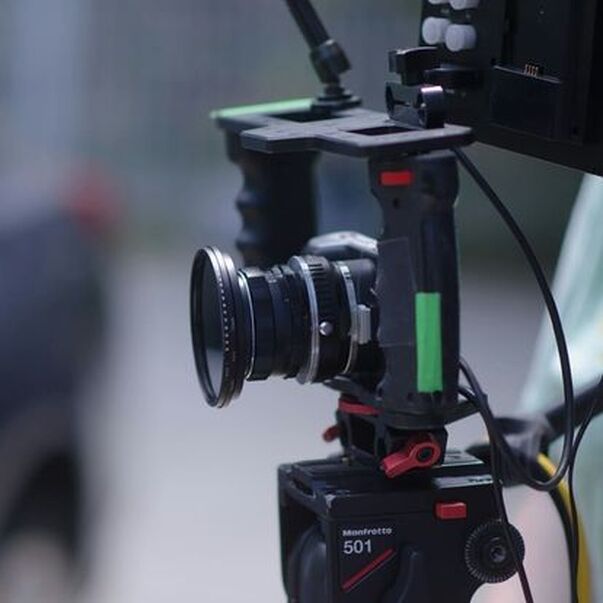 Blackmagic Pocket Cinema camera on-set of "Stuff and Nonsense: Orphanarium" Blackmagic Pocket Cinema camera on-set of "Stuff and Nonsense: Orphanarium" 1. Master your tools! Whatever you own right now. Learn it. Read the manual! (Nerdy, I know, but your gear often has hidden capabilities, and if there are easier ways to perform the functions you need - IT’S IN THE MANUAL) Camera on your phone? Use ALL the modes. DSLR? Master manual control with one lens. Different apertures, lighting conditions. Compare a prime lens vs zoom, if you have both. Basic editing program on your phone/computer? Start using it. Learn the basics, the shortcuts and grow those skills! Maybe you’ll upgrade to a ‘professional’ system in the future. The good news is they’re all similar to use, so the techniques you master with your current program will translate (with some minor differences) to other programs. Lighting - what do you have available? Can you buy some cheap LEDs or clamp lights? Different lamps in the house? Make simple DIY reflectors & diffusers (tin foil, wax paper). Play around with different set ups. Sound - For the love of all that’s good in the world: don’t ignore this essential element. Practice ways to get the best sound from what you have. Invest in a microphone and/or digital recorder Yes, this should be your first investment. SERIOUSLY. Sound can make or break your production. It is THAT important.  2. Read actual scripts & watch movies. Yes. This is actual work & invaluable research. Read scripts to see how they flow, how the screenwriter succinctly gets across a clear visual story that translates to the movie you see onscreen. Pick a genre or director with a visual style you like (Alfred Hitchcock or Wes Anderson, noir or giallo horror, for example), and really notice how they use their camera angles/movement, color, lighting. Try to recreate the same looks. 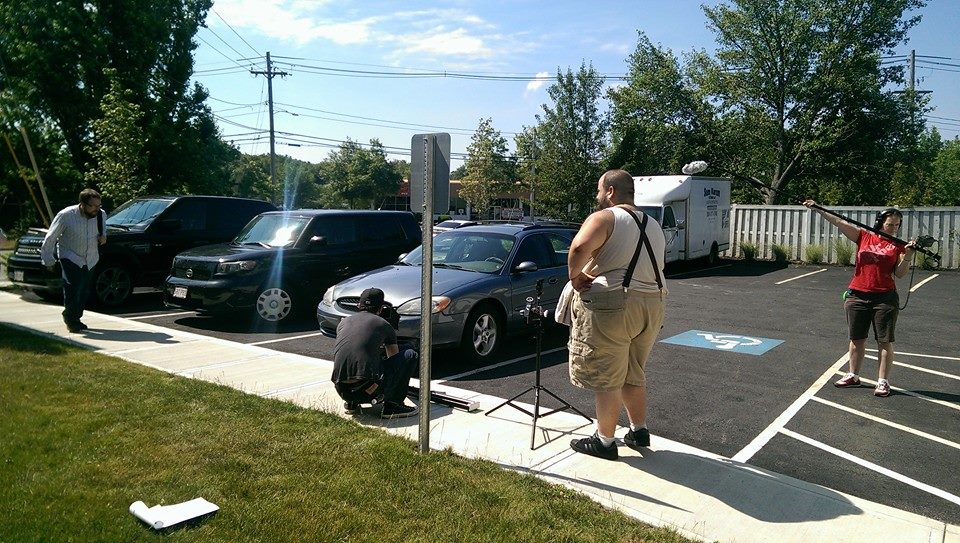 Me holding boom for my friend James' 48 Hour Film Project. Me holding boom for my friend James' 48 Hour Film Project. 3. Volunteer on local productions The fastest way to learn how a successful set works is to actually be on one. (The same is true for a poorly-run set, take note of what pitfalls to avoid). Show up on time, be open to helping wherever you can, observe and ask questions between takes/setups (be curious, but not a pest) - people are often happy to talk about their roles and skills. If you’re an asset, you may be invited back. It’s a great way to learn, as well as make important connections in the community. This crew that you’re working with may just return the favor on your next project. 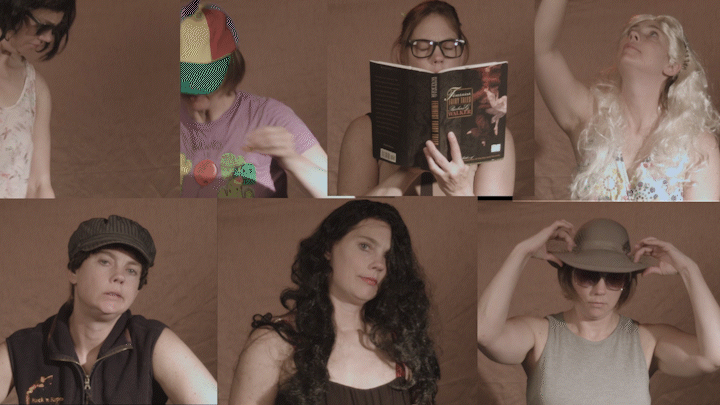 The Mz. Fits. A future project: Cast & crew of one. The Mz. Fits. A future project: Cast & crew of one. 4. Practice, Practice, PRACTICE! Take time to film anything and everything you can. Got a bunch of random footage? See if you can create a story around it. Cut it together as a music video. Mix it with any dialogue scenes you may have filmed as ‘b-roll’ to increase drama, tension, or symbolism. Surreal cinema is a real genre, too! Write a super simple scene (1-2 pages max). Set up a tripod & film yourself, if you need to. Take the footage & edit it. Make it a comedy. Take the same footage & try to make it feel like a thriller. A drama. Learn what makes them different. 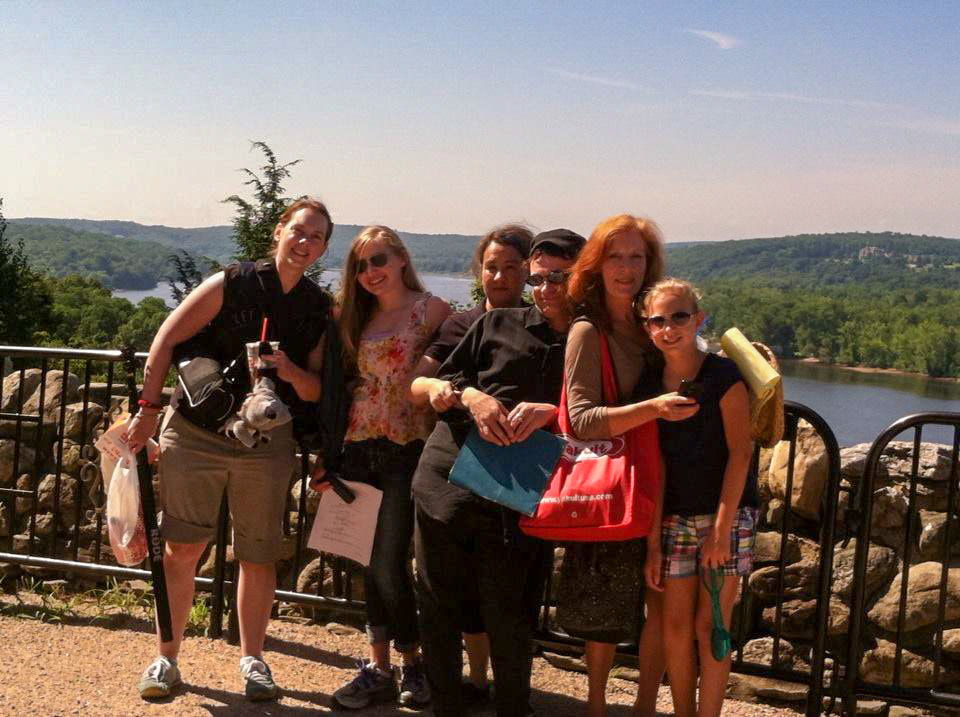 BTS with the cast of of my film "Oopsie" for the 2013 CT 48 Hour Film Project BTS with the cast of of my film "Oopsie" for the 2013 CT 48 Hour Film Project 5. Make a short film with actual cast & crew. Chances are, by now, you’ve made some good connections working with local, experienced, crew members who will be willing to volunteer 1-2 days. Write a short 3-5 page script, with 2-4 actors, and aim to film it in one day. Keep it simple, using a location you have access to (your house is ideal). Shoot a few angles of the same scene, making sure you have someone handling sound recording - even if all you have is a handheld recorder, shoot different takes with it pointed at each speaker. Bring the footage into your editing program. Cut it together, using all the skills you’ve learned up to this point. Once you’ve gone as far as you’re able - export it & share away! Congratulations, FILMMAKER! Yes, you have earned the title. Even though it’s ONLY a 5-minute short. Even though it’s NOT a polished, Hollywood picture, with giant explosions and a cast of thousands. EVEN IF IT’S NOT “GOOD”. Let’s face it, our first efforts aren’t likely to be great. But, it’s still a movie. It’s still YOUR movie. Your film. So, yes, you ARE a filmmaker. *NOTE: You can always go back and re-edit these early films later when your skills have grown. I plan on doing the same - it’s an AWESOME way to show how much you’ve grown as a filmmaker/editor. Now, it’s up to you to continue to learn, master your skills, and, eventually, with persistence and practice, you may, indeed, become a GREAT filmmaker. Rock on & Keep Rolling! - Laura I recently received a random message on my FB page from a girl in India asking for help with auditions. She’d seen a similarly-named company on a video of a youtuber she follows. Even though she'd gotten the wrong "Peppered", I still thought maybe I could provide something of value in her acting pursuits.
Drawing on my own experiences both in casting & auditioning for roles, I sent her the following tips: 1. CAREFULLY READ THE CHARACTER DESCRIPTIONS Don't waste time preparing, or the director's time if you clearly aren't a match. If you aren't sure, email them with the character you'd be interested in reading for. If they seem keen - go ahead! 2. BRING THE REQUESTED INFO Generally a Headshot & Resume. If you don't have much experience, that's ok. If you only have a snapshot, that's ok, too. They just want something to reference as they're considering their options. 3. BE PREPARED! If you have access to the sides ahead of time, really take some time with them. Figure out the overall feel of the scene & how your character fits in. It's super easy to sound like a school child reading a passage in class. The more you can understand what's going on & connect emotionally to the scene, the more natural you will sound. 4. PLAY IT STRAIGHT! Comedy works best (usually) when you are not giving a wink at the audience. Your character is likely unaware what they're saying/doing is funny. Be sincere - UNLESS the movie has the tone of being super silly. 5. ACT, REACT, INTERACT When you have a scene partner (or someone is reading another character's lines), really be listening & engaging with what the other person is saying/doing. A huge part of acting is actually reacting to other characters' words & actions, and interacting with them. It's not just about delivering your lines - it's about fitting into the scene & situation. If you're only anxiously awaiting your turn to talk, you're missing the actual 'acting' opportunity. - For this one, I recommend having someone read with you. It'll get you comfortable delivering the lines, as well as connecting with the material in a more authentic way. 6. LISTEN TO THE DIRECTOR If you're given notes, try to absorb and integrate them. Part of the audition is the director trying to find out how well you actually take direction. Can you listen & work with the suggestions they give you? Are you comfortable/flexible enough with material to go in a different direction. If you give the same exact performance after every suggestion, then you aren't actually successfully being directed. You probably won't be the best fit for the role. 7. TREAT EVERYONE WITH RESPECT The director is the LAST person who will likely see you that day. There are assistants checking in auditioners, fellow actors, and often crew members. If you are disrespectful, or look down/try to psych out or otherwise look down on your fellow actors, crew, or staff - that feedback WILL get back to the decision maker. 8. REALIZE THAT EVERYONE IS NERVOUS You're definitely not alone. If you stumble, stammer, or lose your place, take a breath & continue. Don't let yourself get flustered. Get through it & just aim to do your best. We ALL have moments where we get stuck - the key is to recover from it & move on. 9. THANK THE DIRECTOR FOR THE OPPORTUNITY You can send a follow-up thank you note (short), but don't press for results. You should know going in how they're going to proceed (Will they email everyone their status? Only email their chosen actors? What is their timeframe for getting back to actors?). If it's beyond their promised feedback timeline, and there's been nothing posted or sent to you - you can politely ask if there's a status update. But, don't send emails until that time is up. 10. TREAT EVERY AUDITION AS AN OPPORTUNITY Regardless of the outcome: - It's a great opportunity to perform! - It's an opportunity to practice and get feedback - this will help you grow! - It's an opportunity to get your face in front of filmmakers - and, if you continue to audition for the same directors, you hopefully are showcasing improvement! - It's an opportunity to thicken your skin - acting is a LOT of rejection. You need to learn not to take it personally. There are COUNTLESS reasons you were not chosen & only a small part of if could be your actual audition. Take the bits of feedback you can work on & really work to improve upon them. -------------------------------------------------------------------------------- Her response to my thoughtful offering? A ‘THUMBS-DOWN” reaction & nothing more. Hmm...maybe this is more ‘tin’ advice than gold? Was it too generic? Too obvious? Was she just ungrateful, or maybe assuming I'd throw her a role (half a world away) I'd love to hear YOUR thoughts! I had started writing a blog about how our last filming day went. But, I wasn't feeling in the rambling spirit, and, instead am choosing to share my gratitude (originally posted on Facebook). Don't worry, kids, I saved a draft of my original post. Thank you to everyone who came to play with us Sunday. It was a tremendously successful day in terms of what we were able to shoot, how quickly everyone assembled/disassembled/reassembled, and the general camaraderie of our film family!
James - Thank you for opening your studio & home, and accommodating every need, request, gear, and guidance! And, NBD, for being one of the primary reasons we picked up filming again this year <3 Angela - my rock, reality check, & right hand. Thank you for ALL that you do on set - which extends far beyond your "Set Designer" designation. I think there may be a second "Set Ninja" credit added to the IMDB database. Jesse & Chops - thank you for being my mighty alternating 1st & 2nd unit crew of 2. You guys kept the day moving, and the shots look fantastic. You ran around and worked your asses off to get a ton in the can. Thank you. Pat, Lily, Anna, Jessica, Hannah, Sarah, Nicole, Candice, Eli - Most of you have been here from the beginning, and are still hanging in after a 2-year hiatus. Nothing but love, respect, gratitude & the feels. Rita, Brooke, Ev, Mary, Marion, Amadeus, Amy - thank you for joining in these episodes. Some of you were here on super short notice, and came to set prepared, professional, and open to the completely inappropriate & ever-adapting shenanigans that erupt from my twisted brain. You all fit right in with our motley crew. Becky, Rita, Maggie, Tori - Your dedication to your childrens' interests & experiences made the day special. Thank you for hanging out while waiting for their scenes to be ready. They really did an awesome job, and their composure and great attitudes on an uncomfortable, longer-than-anticipated day were amazing. Thank you for giving us the opportunity to work together! I sincerely hope I didn't miss anyone. I am so proud and grateful for each one of you, taking a chance on me & my project. YOU have made it possible, and I appreciate your participation in this journey. With love & appreciation, Laura I'd like to take a moment, please:
It is a struggle to be an independent filmmaker. Period. I generally work 7 times for one project:
The hours are what you can scrape around your full-time job. I work at least 40 hours per week. A year ago, it was averaging closer to 50. I have to give at least 2-3 weeks' notice before taking time off, so I have to plan carefully, knowing I can't just throw in 'rain dates'. The little pockets you plan for unfailingly fail in some way - equipment issues, last-minute drop-outs, locations fall through, actors get sick, toilets breaking... Yes, I have personally dealt with all of the above. And, it's all your problem. After all, this is your circus, and your gloriously talented monkeys. It's all YOU. If you're lucky enough to have a team to help scout for locations, schedule cast & crew, plan shot lists, you're at a slight advantage - slight only because the contingencies still apply. No one else will ever care as much about your project as you do. So, you hitch up your big-girl pants and carry on. And, this just gets you to the production stage! On set, you work with a diverse group of people. It's your job to make them comfortable, set expectations and get the work done. They opted to work with you based on reputation, the script, group you're working with, or any number of personal reasons. And, if it's an unpaid project, you need to work harder to ensure you provide value and respect for everyone's time. You get through the pages, all your planned shots, and everyone goes home. Your film/sketch/series is in the can, and you've captured your vision to the best of your ability. And, it won't be without compromise, but you accept that as part of the deal. Sometimes things won't work practically as you'd envisioned, and sometimes you simply run out of time. But, it's done, in a tangible form. YOU DID IT!!! It's exhausting, expensive, and exceptionally exhilarating when it all comes together. But, it's far from over. Now it's your job to sort through all the pieces you've captured, and collect more, to craft your narrative. The fun part is over. And, now the fun begins. This round is the longest, loneliest stretch. It takes painstaking precision, a feel for timing, and a lot of perseverance to assemble this moving jigsaw puzzle. The collaborative sustained energy of your cast and crew have long since gone, as you stare at a monitor for hours on end. However long you think it will take you to assemble even a rough cut - multiply it by 3...or 10. Oh, and, don't forget, you still have that day job (and maybe family, health conditions, other responsibilities). So, again, this is all pursued in your personal time - when you feel physically and mentally up to the work. And, as fun as it can be, believe you me, it is WORK. Most days I am braindead after my day job. A shower, a nap, and, if I'm lucky, I'm able to put a little time in on an idea or edit. I try to take at least one of my days off to focus exclusively on editing for a few hours. But, again, editing is a long, intricate process. Four hours may mean two seconds of a film come together, or maybe one problem millisecond is worked out. "So, why'd ya ask for a moment, Pep? This seems pretty straightforward. You don't seem to be ranting about the process or bitching about anyone. What gives?" Simmer down, Sally. I'm getting to it. No-budget, independent filmmaking is a difficult, mostly thankless, unappreciated and underestimated endeavor. It is full of compromises, struggles, obstacles, time-sucks, hidden expenses, and, in the end, your film/episode/series may not even get many views. It may turn out shitty - or others may make you believe it is. It may never be good enough, make you any money, or be deemed 'worth it' to those who were part of the journey. You can only hope that's not the case. But, if it is, and you agree, you can learn from your mistakes & move on. Either way, you will have made something, which is far more rare than you realize. And, now: MY MOMENT: I choose a moment of gratitude. (Fuck y'all who were hoping for drama - there ya go, it's in a parenthetical). I gratefully acknowledge the cast, crew, and tribe who consistently support what I do. Who have joined my no-budget, unpaid projects. Who collaborate and work with me to create the best version possible. Who don't need to know the nitty-gritty of what I'm doing, or how far along I am with editing their scenes. Who give me breathing room to get things done within the time I have. Once in a while, someone will respectfully inquire about progress, to which I am always upfront, and try to push myself as much as possible. But, most of all, I wanted to appreciate and acknowledge the TRUST of everyone, that I will finish what I started. That it will be the best version possible, and that we can learn & grow together. In the meantime, I sincerely THANK YOU. I know there are long stretches before you see the fruits of your labors, and I appreciate your patience and continued support. And, for those readers who haven't been part of my film projects, thank you for being here. Your support is also part of this journey. Thank you - Laura #attitudeofgratitude |
Archives
April 2022
|
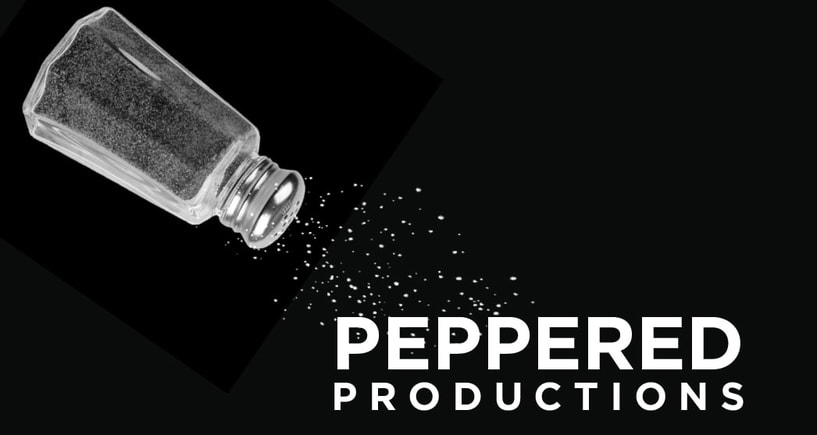
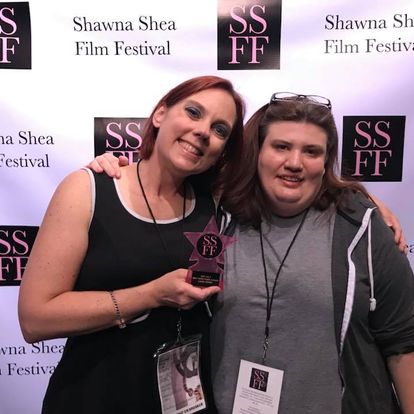
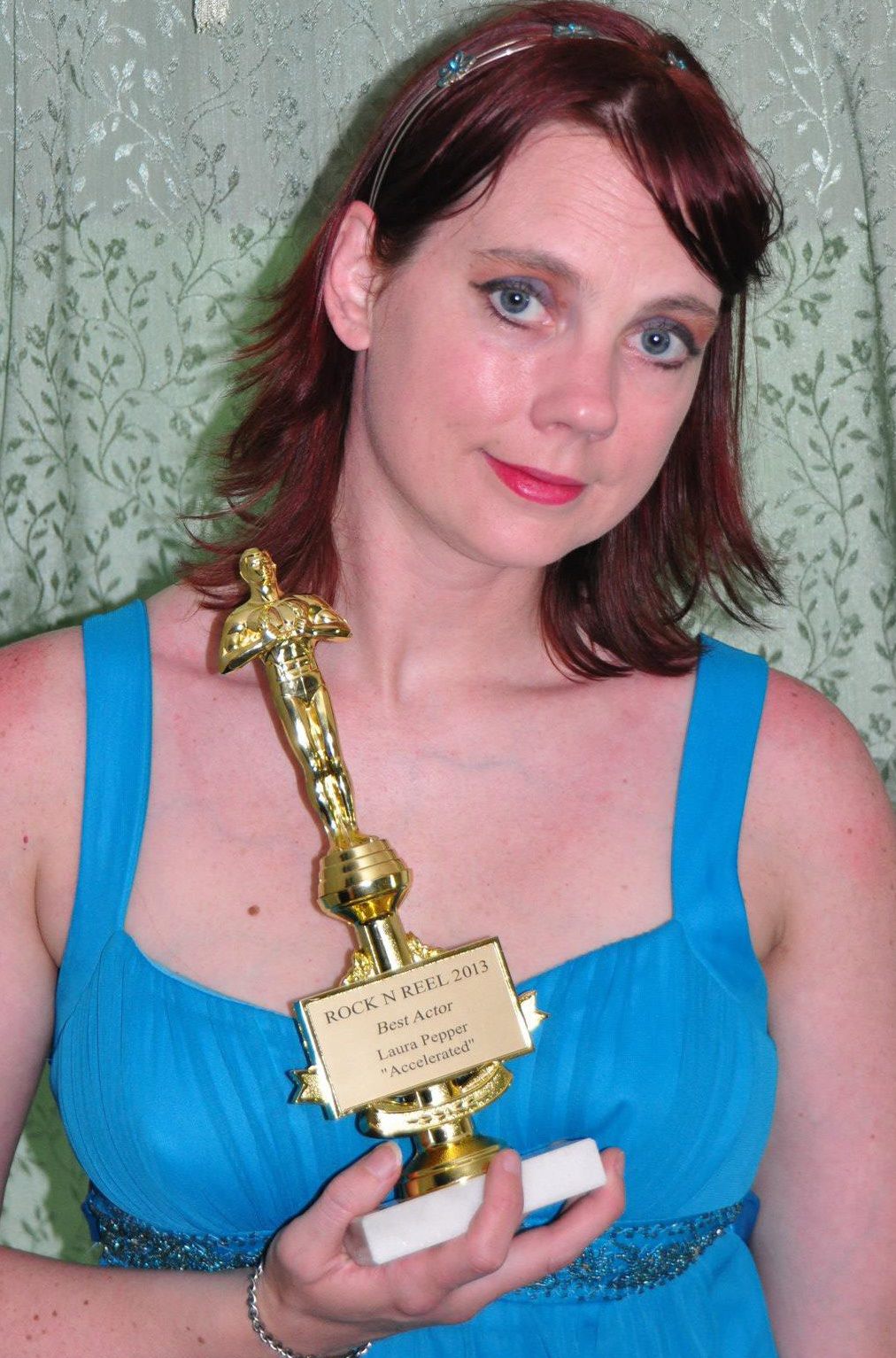
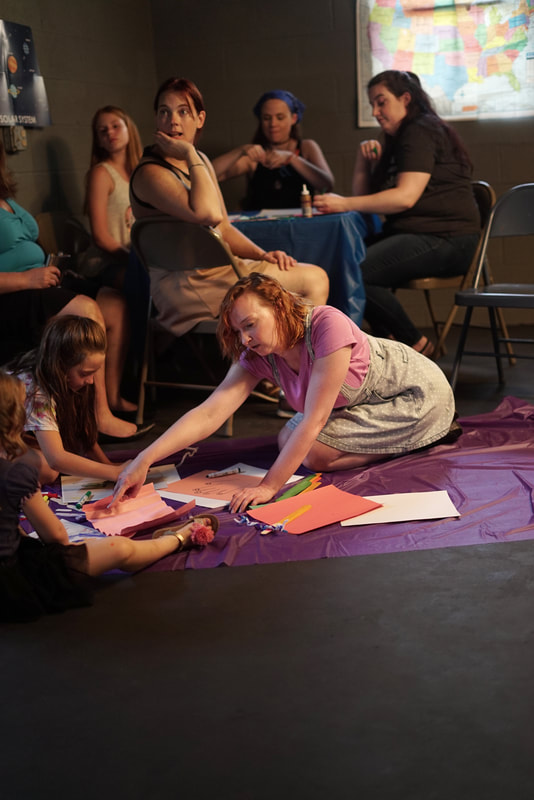
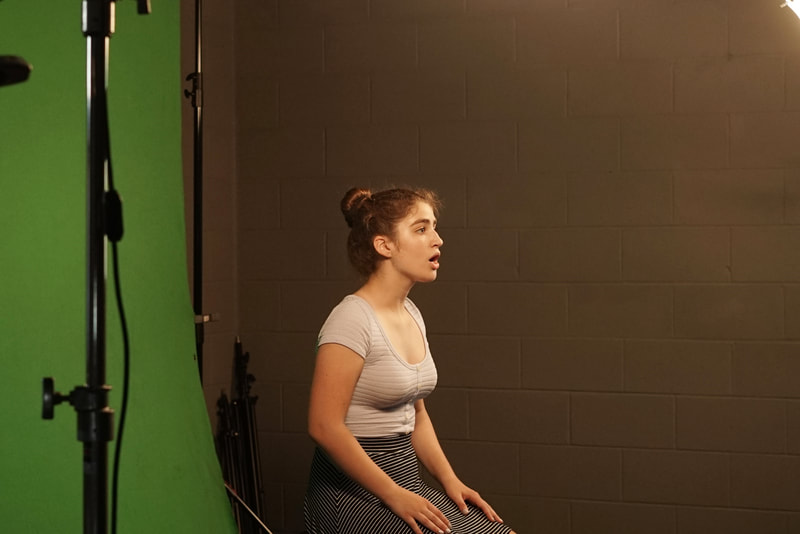
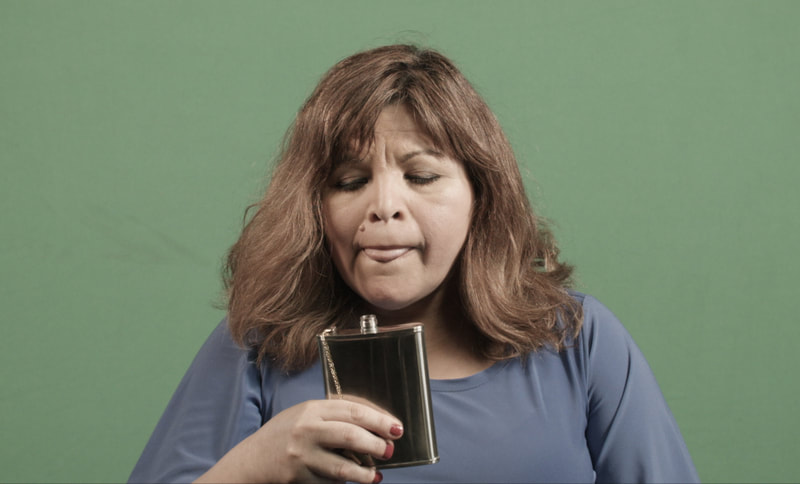
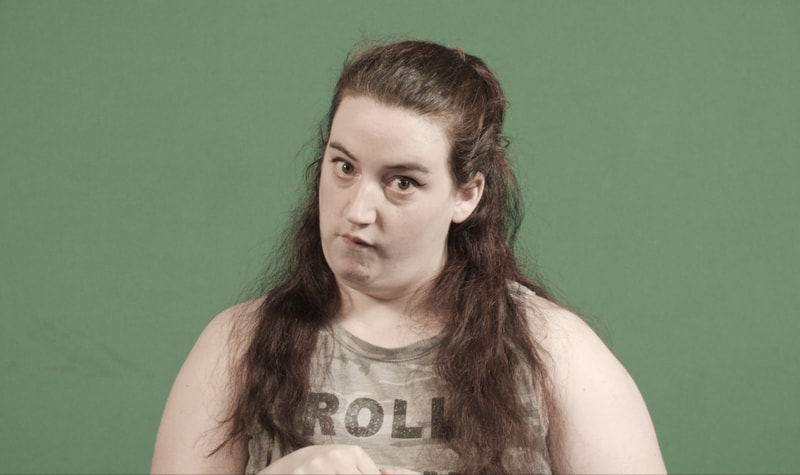
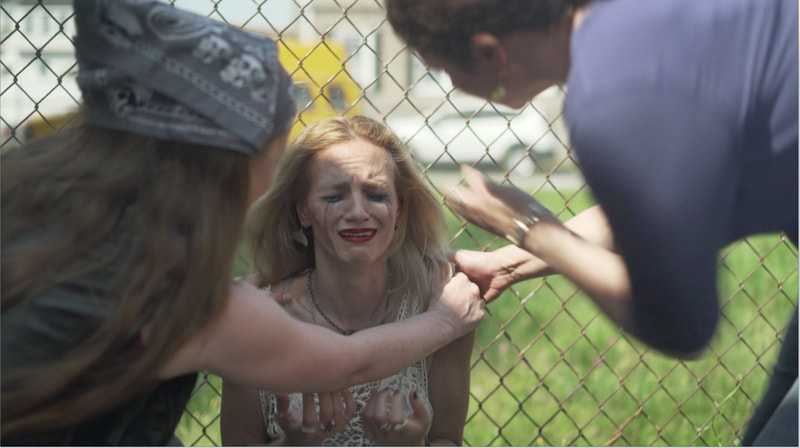
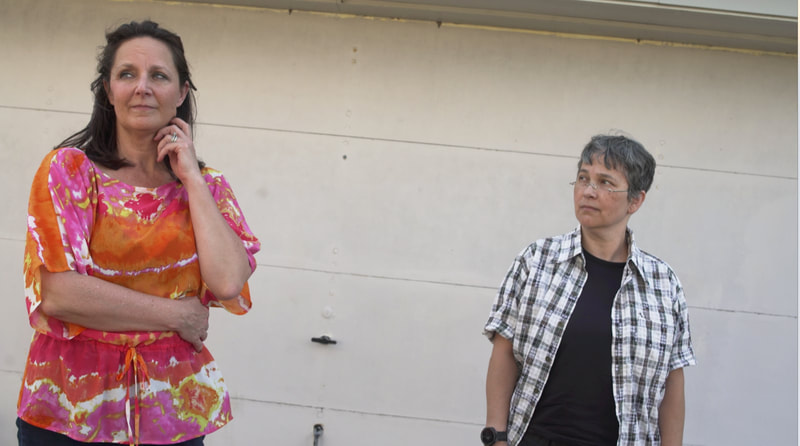
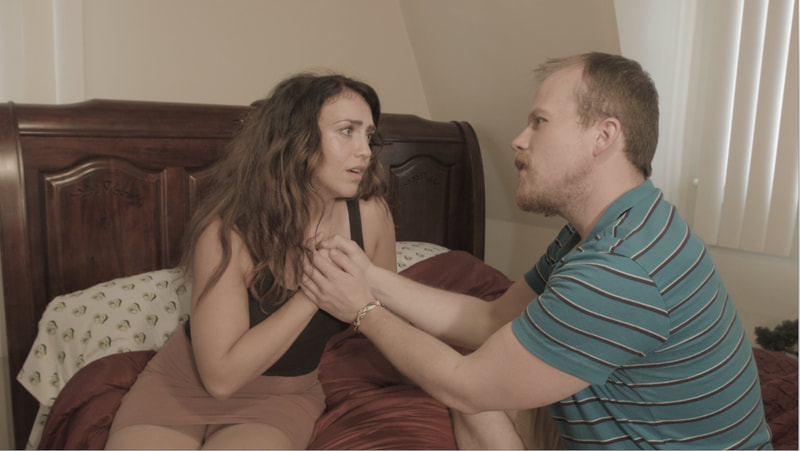
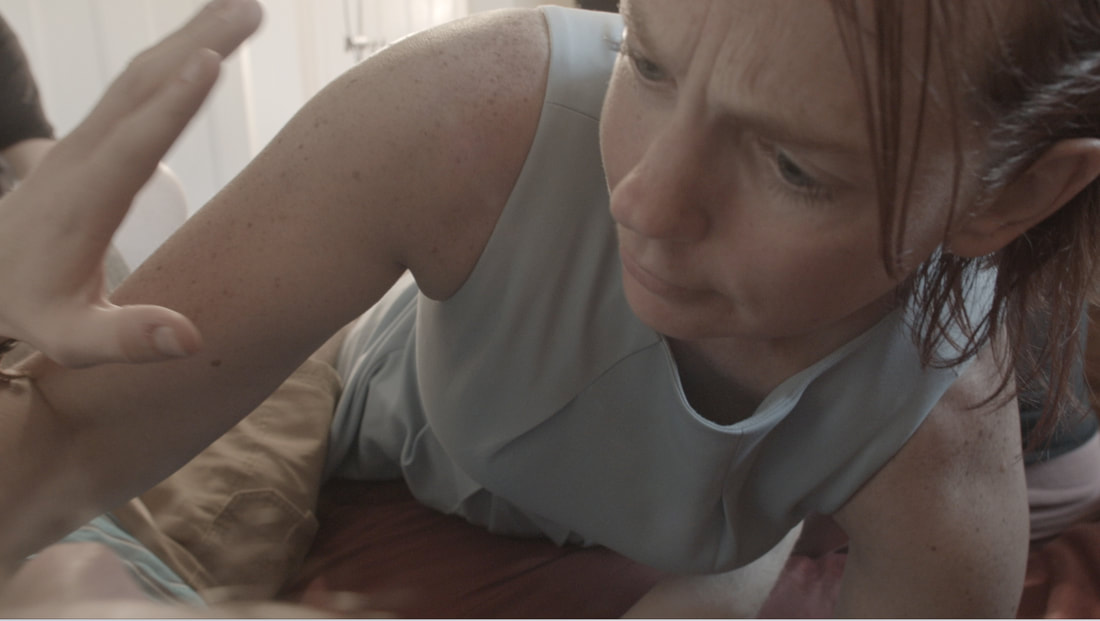
 RSS Feed
RSS Feed